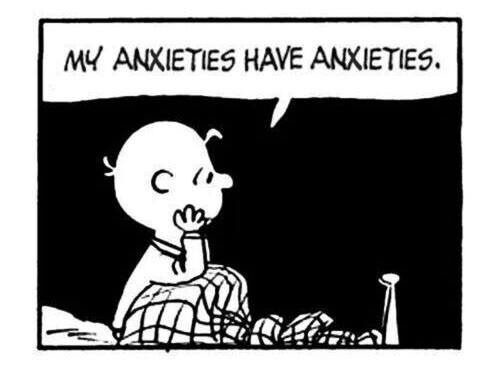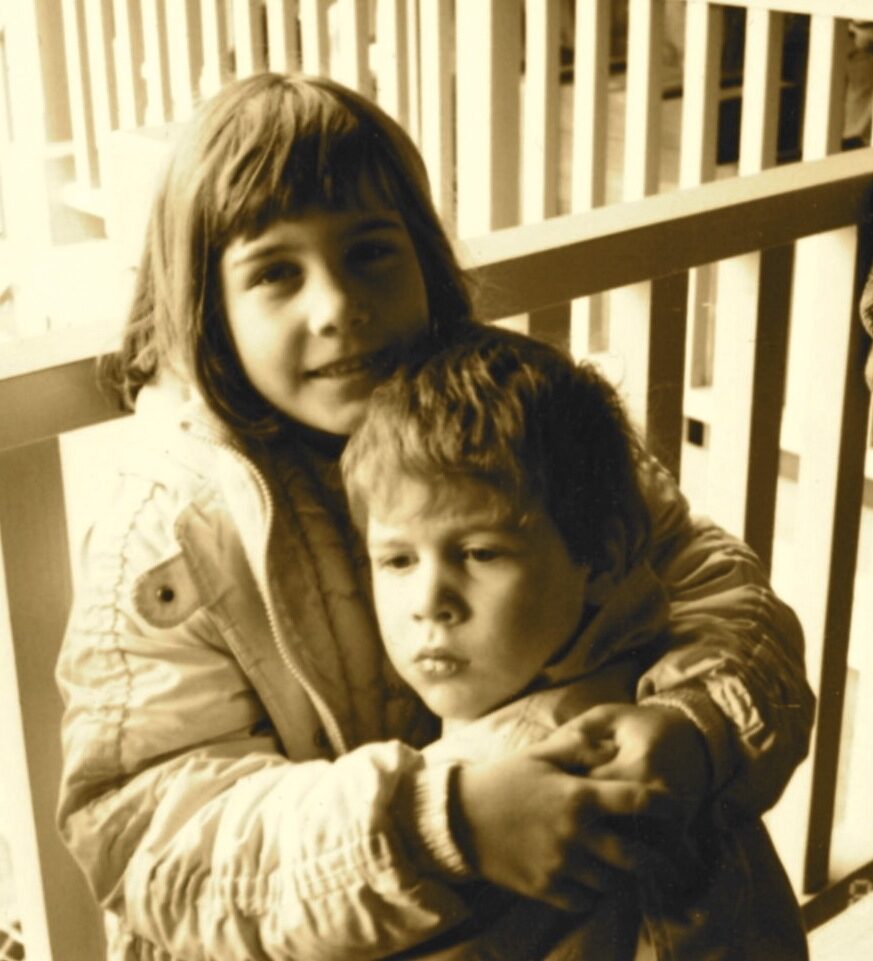Spectrum Disordered www.facebook.com/asdisordered We’ve all heard or experienced horror stories about accessing services and supports. Often the idea of receiving services for people with intellectual and developmental disabilities (I/DD), including autism, conjures up images of institutions—visions of Willowbrook. Or, ideas of what is “optimal” for us look like segregated lives, or “intentional” communities where the true intent is to lump us together under the guise of “keeping us safe.” Regularly, the idea of seeking supports to live in one’s daily life carries an expectation that the cost will be any and all independence and autonomy in having positive control over that life. These fears are rooted in fact and truth, both of how things were and in some cases, continue to be. But that does not mean they are a universal truth! There are a lot of really great disability support providers out there! Unfortunately, there are also plenty of…
Tag: services
How many anxious people are not getting helped because access to mental health services is blocked by the lack of accommodation for the very issue that brings them seeking services in the first place?
Clarissa Kripke, MD, FAAFP odpc.ucsf.edu In this important talk for anyone concerned about their, or their child’s, long-term living arrangements and supports, Dr. Clarissa Kripke explores progress made in community living for people with developmental disabilities. She explains how California’s Lanterman Act has been enormously successful by establishing an entitlement to community-based services and supports for people with developmental disabilities of all age, and how those services work. She also discusses specific successful cases, and clears up misconceptions about which housing models work best — both financially, and for quality of life. I’m the Mom of an Autistic teen. Of course I want what’s best for him. I want him to have opportunity, stability, care, and respect. After trying to learn everything I could, I realized that wanting what’s best, and knowing how to achieve it, are two different things. Fortunately, we live in California. The Lanterman Act was developed…
Jennifer Byde Myers jennyalice.com Just after the recent murder of Alex Spourdalakis, yet another parent has attempted to murder her autistic child. Services to help families are not available to the degree they are needed, often leaving parents of children with intense needs feeling abandoned, depressed, suicidal and, in some cases, homicidal. I just sincerely wish these conversations could be separate. They must remain separate. I know how it happens, how the conversations seem like they should go together. As parents of kids with intense needs, medical, mental or physical, we are each slogging through life, with easy days and hard days and harder days, until something really bad happens, then we are triggered to say to the world, “See, look how hard this is. Why doesn’t anyone care?” But the problem is that caregivers say this at the very same same time that someone was trying to kill their…
The stated goals of yesterday’s Congressional Oversight and Government Reform Full Committee Hearing: “1 in 88 Children: A Look into the Federal Response to the Rising Rates of Autism” were to “…get a clearer picture on what is being done, what questions still need to be answered and what needs exist for those children, adults and families who live with an Autism Spectrum Disorder.” This hearing was notable for its precedent-setting inclusion of autistic representatives. Committee Chair Darrell Issa noted that as long as he heads the committee, it will stay open to autism concerns and may even try to find funding to address them. Video coverage of the entire hearing is embedded at the end of this post. The hearing witnesses (and each’s official testimony): Alan Guttmacher, M.D. (testimony) Director, Eunice Kennedy Shriver National Institute of Child Health and Human Development, National Institutes of Health Coleen Boyle, Ph.D. (testimony)…
Kerima Çevik theautismwars.blogspot.com Several years ago, I attended a meeting of parents and care providers to discuss the lack of county services available for their loved ones on the autism spectrum. At the meeting, an African American medical professional told me something that still gives me pause: “Autism is a disability for the rich,” she said. “Only the wealthy can afford the costs of the intensive early interventions we as parents need to help our children succeed.” She continued, “As African Americans, we are disproportionately caring for our children on the spectrum as single parents, with limited means, and are dependent on institutions like our public schools to give whatever supports they can.” As I continue my three year fight for appropriate supports for my own child, I ask myself each day, “Was my acquaintance correct? No matter how diligently I try, no matter the effort I make, will I…
Interview with Dr. Gil Tippy Clinical Director of The Rebecca School, Manhattan, New York www.drgiltippy.com How are the DSM criteria for autism changing? From the official site: “A single spectrum disorder [i.e., folding in Asperger Disorder and PDD-NOS] is a better reflection of the state of knowledge about pathology and clinical presentation; previously, the criteria were equivalent to trying to “cleave meatloaf at the joints.” “Three domains become two: 1) Social/communication deficits 2) Fixated interests and repetitive behaviors “[because] Deficits in communication and social behaviors are inseparable and more accurately considered as a single set of symptoms with contextual and environmental specificities.” We spoke with Dr. Tippy about what the proposed revisions to the DSM 5 will mean for Autistics, autism families, and autism professionals. Dr. Tippy also outlined actions everyone in the autism communities can take to prevent these changes from cutting off critical autism services and support. Why…
Dr. Joni Redlich, DPT www.kidpt.com Movement is an integral part of our social, emotional, and physical lives. A 4-month old excitedly kicks her arms and legs in response to the funny face dad makes, so he does it again. An 8-month old will crawl to retrieve her favorite rattle, shake it to hear the sound it makes, and then look at mom to share the experience with her. An 18 month-old takes moms hand, walks her to the kitchen, and says “juice” while pointing to the refrigerator. As a child grows, the length and complexity of movement sequences become more sophisticated. Children with autism spectrum disorder (ASD) often cannot coordinate the myriad of movements needed to complete these interactions. Although children with ASD are often not diagnosed until they are far out of infancy, studies of home videos of children later diagnosed with ASD showed motor differences that had been…
Autism and Oughtisms Autism and Oughtisms What happens to a community of people facing the same challenges, forced to compete for limited resources (particularly government resources)? The effects I’ve seen at a local level – here in New Zealand – appear to be replicated overseas, according to what I’ve seen in debates and conflicts in the online communities. There are various government provided supports (in terms of finances and services) that require you to prove your child’s autism is more severe than other children’s autism. Sometimes this is done in direct competition; a specifically limited number of packages of assistance are made available within the country, to the point that if your child qualifies for the support, there is one less assistance package available for another family. Other types of support are available to every child on the spectrum, but the level of support you receive, or how long you…
Lindsey Nebeker is one of our community’s most visible activists, speaking out on topics ranging from autism and dating in Glamour magazine, to the need for more safety and support measures for individuals with autism at a recent Interagency Autism Coordinating Committee meeting. Lindsey was diagnosed with autism at the age of two, and began to speak around age four. She grew up in Tokyo, Japan with her younger brother James, who shares the same diagnosis but faces more challenges. She recently spoke with TPGA about her experience growing up as one of two siblings with autism. Tell us a little bit about yourself. How old are you, where do you invest your greatest energies, and when did you first receive your autism diagnosis? I am a pianist/songwriter, photographer, public speaker, and advocate currently residing in the Washington, DC metro area. As a woman in my late twenties, I have…

